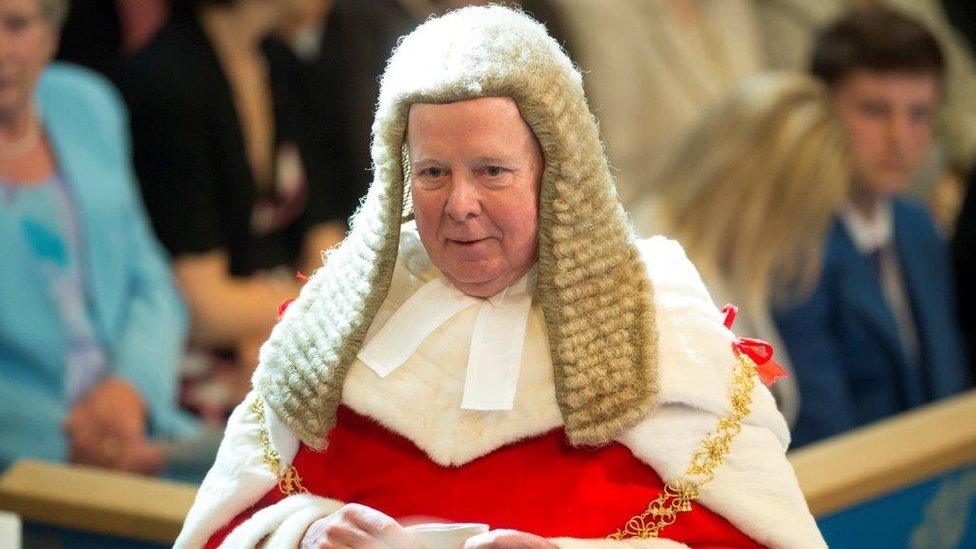Barristers warn police over Welsh language 'obligations'
- Published
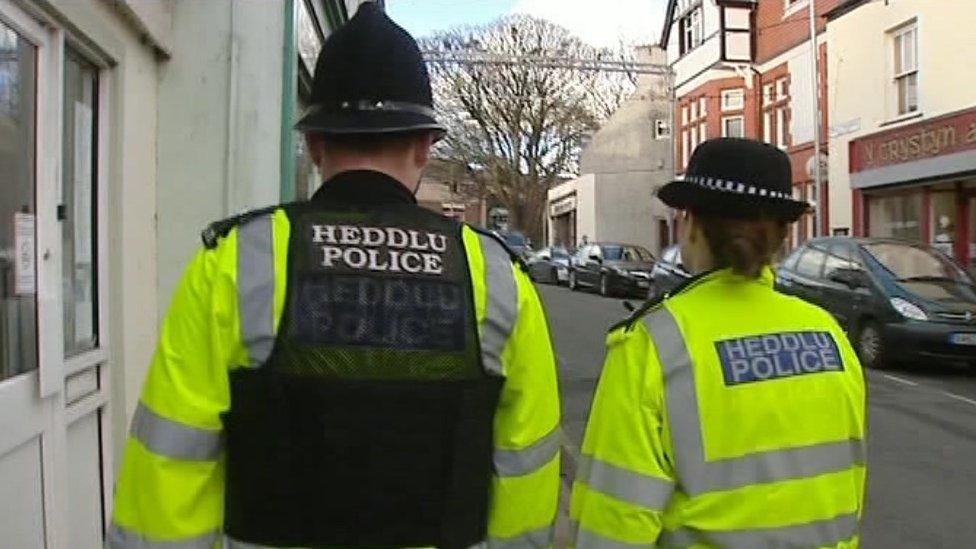
The Welsh Language Commissioner wants interviews to be translated simultaneously - as is done in court throughout Wales
Police must not 'shirk their obligations' to offer Welsh language legal interviews, barristers have said.
Standards imposed by the Welsh Language Commissioner include a duty to provide a simultaneous translation service if an interview cannot be conducted in Welsh.
Chief constables in Wales have complained this requirement is 'unreasonable and disproportionate'.
The Bar Council said police objections "do not stack up".
Currently if a Welsh-speaking officer is not available to conduct an interview in Welsh, police forces in Wales offer a "consecutive translation" service.
That means questions asked in English are translated into Welsh, before the response is translated into English.
The Welsh Language Commissioner wants translation to be simultaneously - as is done in court throughout Wales.
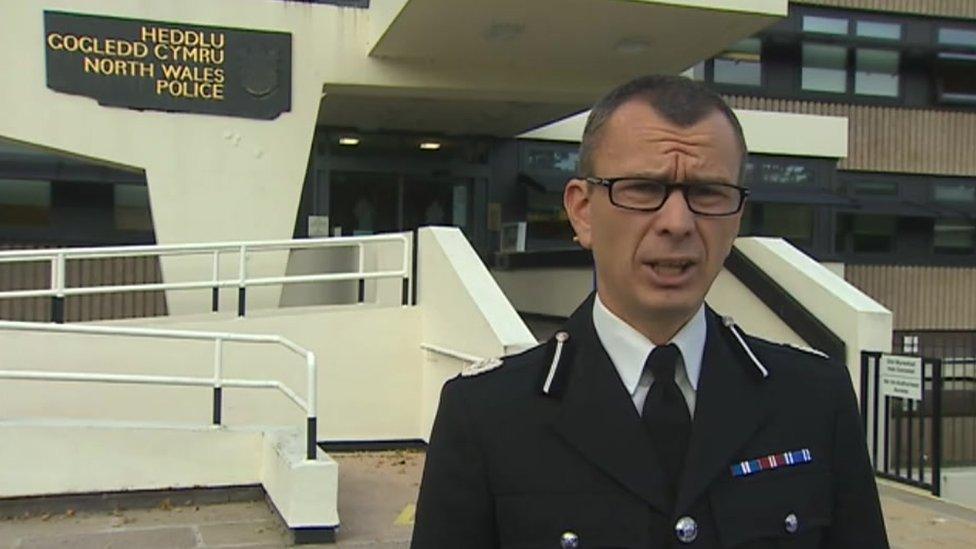
North Wales Police's Deputy Chief Constable, Richard Debicki, said forces were "committed" to providing services in Welsh.
North Wales Police's Deputy Chief Constable, Richard Debicki, who leads on Welsh language for all four forces in Wales, said police were "making every effort" to provide a fully bilingual service to local communities.
However, simultaneous translation would require significant investment and could hamper investigations, he said.
"In the event that a Welsh-speaking officer is unavailable, our preferred option is to use consecutive translation," Mr Debicki said.
"To use simultaneous translation, the four Welsh forces would need to change their physical infrastructure, procure a new IT system, tender for a simultaneous translation service and resolve any issues in relation to the requirements of the Police and Criminal Evidence Act (PACE).
"To use simultaneous translation, when words are being recorded either verbally or written, is far from ideal and could lead to problems during an investigation," he added.
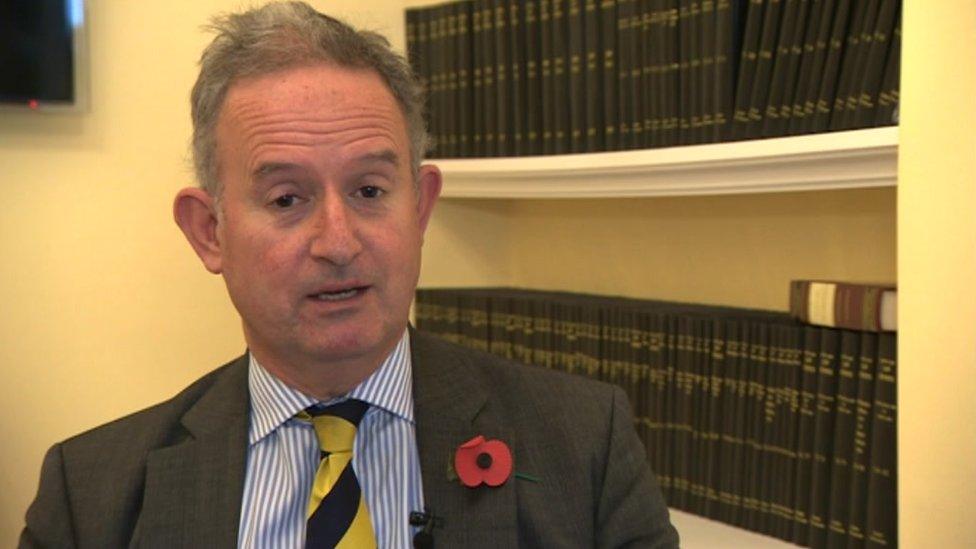
Barrister Rhodri Williams said simultaneous translation between Welsh and English already "works very well" in Welsh law courts
Rejecting those arguments, the Bar Council's Law Reform Committee have said simultaneous translation does not contravene the PACE and is less disruptive to interviews than the stop-start nature of consecutive translation.
Cardiff-based barrister Rhodri Williams said: "The police constables' argument does not stack up so the standard should be applied.
"Instantaneous translation is in place in courts up and down the land and works very well."
- Published26 September 2018
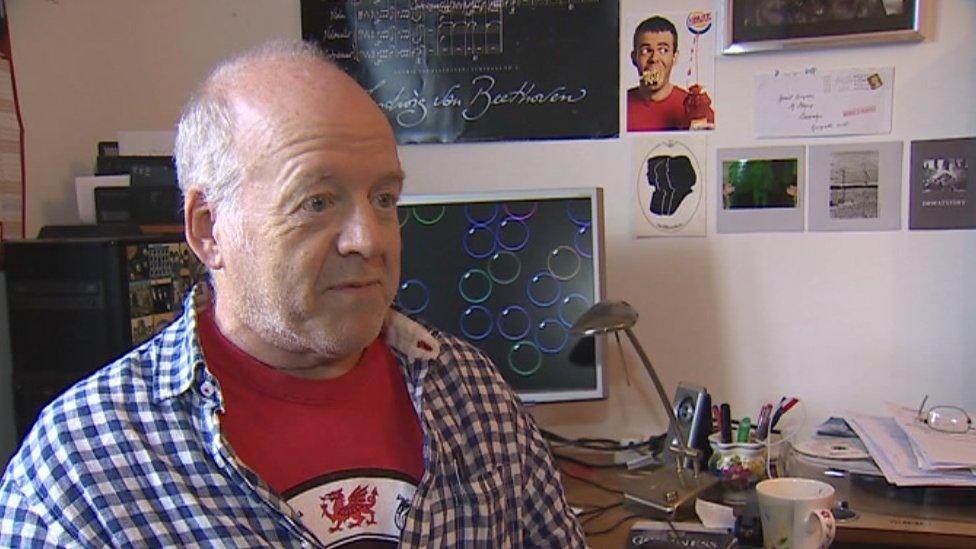
- Published22 September 2018
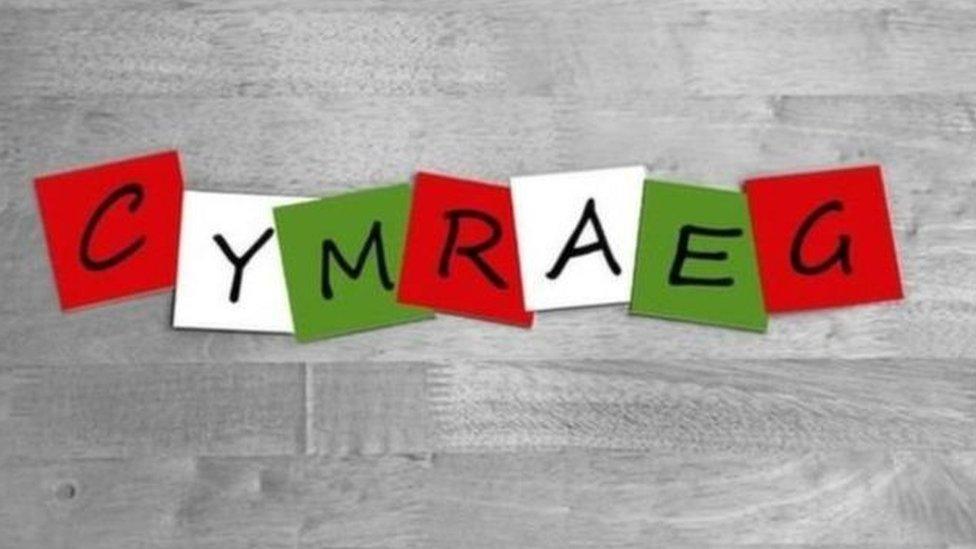
- Published24 April 2018

- Published18 January 2018
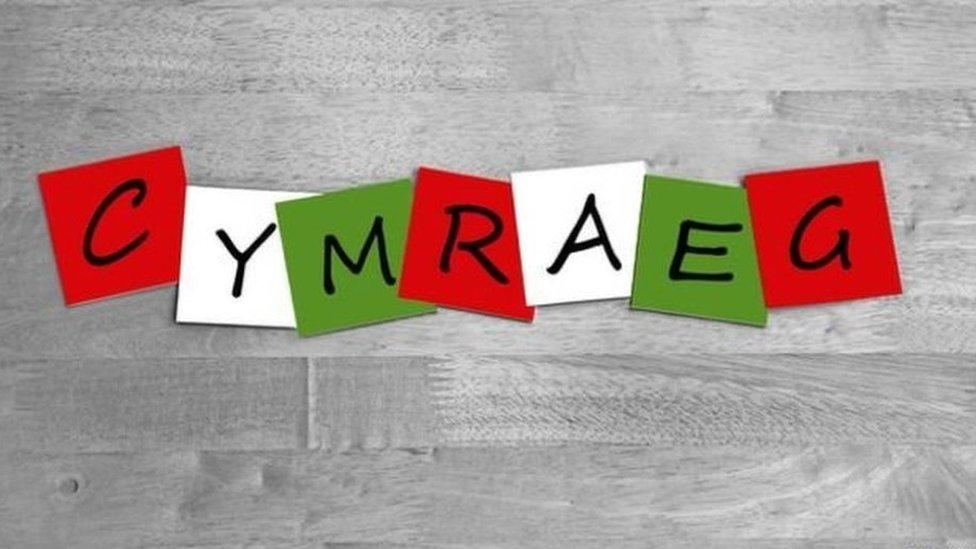
- Published13 September 2017
